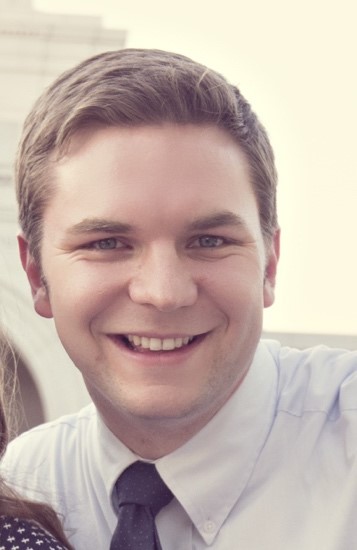Loyola University Chicago Law Student Wins First Place in Center for Alcohol Policy National Essay Contest
The Center for Alcohol Policy is pleased to announce that Travis Thickstun, a J.D. candidate at Loyola University Chicago School of Law, has been named the winner of the Center’s Twelfth Annual Essay Contest. Thickstun is also a district commander for the Indiana State Excise Police and holds a Master of Jurisprudence from Indiana University McKinney School of Law in Indianapolis.
To enter the contest, participants were asked to provide thoughtful responses to the following prompt:
During the United States Supreme Court 2019 term, the Court announced in June its decision in Tennessee Wine and Spirits Retailers Association v. Thomas (TWSRA v Thomas). Based on the Court’s decision, what do you believe will be the next steps for alcohol policy in the United States?
“The TWSRA v. Thomas Supreme Court Case provided an extraordinary opportunity for participants to explore the potential aftermath of this decision – the first of its kind in 13 years,” says Center for Alcohol Policy Advisory Council member Brannon Denning. “This year’s winners delivered exceptional research and analysis on the Twenty-First Amendment’s history in the courts and its future in light of Justice Alito’s opinion.”
Thickstun’s winning essay, “The Camel’s Nose Under the Tent: Next Steps for State-Based Alcohol Policy After Tennessee Wine and Spirits”, provides an in depth analysis of courts’ initial interpretations of the Twenty-First Amendment immediately following its adoption and skillfully addresses its historical and complex relationship with the Dormant Commerce Clause leading up to TWSRA v. Thomas.
Thickstun outlines possible next steps for state-based regulation of alcohol and provides policy recommendations – “State legislators, regulators, and the alcoholic beverage industry itself… must enact alcohol policies that can withstand the post- Tennessee Wine Dormant Commerce Clause analysis by basing them on concerns for public health or safety or on some other legitimate nonprotectionist ground.”
Timothy Gervais, a tax accountant in California and now a three-time award recipient, placed second with his essay, “Residency Requirements, the Commerce Clause, and the “Predominant Effects Test”: A Brief Analysis of Tennessee Wine and Spirits Association v. Thomas”.
Gervais acknowledges the difficulty of predicting long-term consequences that stem from any Supreme Court ruling and addresses the reality that changes in alcohol regulation might happen gradually.
Even so, Gervais points out that “one clear implication for future alcohol regulation” from TWSRA v. Thomas is the considerable amount of litigation that is sure to arise from its decision.
Receiving third place for her essay “Erosion or Explosion? The Future of Alcohol Policy in the United States,” Adrienne Southworth, the former deputy chief of staff to a Lt. Governor, addresses what she believes to be a “new era” in alcohol policy following the Tennessee Wine decision, given the “180-degree turns” the Supreme Court has made in its interpretation of the Twenty-First Amendment.
Southworth questions four possible outcomes: Whether this new era could “disintegrate” the three-tier system, the potential for escalated litigation under the Commerce Clause, whether the weakening of state regulations could result in national policy or if state regulations might survive as long as they assume smart solutions.
The winning entrants received prizes of $5,000, $2,500 and $1,000 respectively.
These essays were judged by the Center’s Advisory Council. Judges did not receive any names or personal information about the participants prior to judging.



